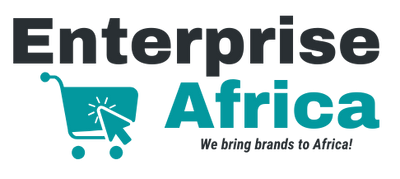Overview of the South African Beer industry
South Africa is Africa's largest beer producer and consumer and ranks twelfth in the world in beer consumption. The country represents 1.8% of the world's beer consumption. The South African beer market accounts for approximately 30% of the African commercial beer market.
Beer consumption
The population of the country is around 58 million. Of those aged 15 and over, around 31% consume alcohol regularly. Beer is the most popular alcoholic beverage with 56%, followed by wine and spirits with 18% each.
- Beer consumption 2017 - 33.22 million hectoliters
- Beer consumption 2018 - 34.47 million hectoliters
Beer accounts for 2.1% of total household expenditure. This is equivalent to spending on personal care (2.1%) and is higher than spending on tobacco (1.9%), vegetables (1.5%), sweets and desserts (0.7%) and fruit (0.3%).
From a 2018 study at Stellenbosch University, it was found that among people of Generation Y (born 1980-1995), 71% of women preferred light beer, while 66% of men surveyed preferred regular beer. 70% of the people surveyed were between 21 and 23 years old.
In 2020, temporary bans on the sale and serving of alcohol were enforced by the government to combat the spread of Covid-19. This also reduced sales in the beer industry.
Beer production
In 2018, the largest player in the South African beer industry was South African Breweries (SAB) with 87% market share, followed by Heineken South Africa with approximately 12% market share. Heineken South Africa managed to increase this market share to 18% in 2019.
A growing niche in the South African beer market is craft beer. There are around 220 craft beer breweries in South Africa (as of 2020). These currently account for a market share of approximately 1%.
- South African Breweries (SAB)
- SAB has been the country's leading brewery for over 100 years.
- SAB's annual brewing capacity is about 3.1 billion liters and consists of 7 breweries and 42 beer depots.
- Well-known brands include Castle Lager, Hansa Pilsener and Carling Black Label.
- Castle Lager is the most consumed beer in South Africa
- SAB also offers a range of non-alcoholic and low-alcohol beers, such as Castle Free, Castle Lite and Flying Fish Chill Lite, and aims to increase the share of these beers in total production to 20% by 2025
- Heineken South Africa
- According to the financial results of the Dutch parent company, one of Heineken's top performers worldwide
- Contributes approximately 3% of Heineken's global production
- Installed capacity of 5.3 million hectoliters, currently being increased to 7.5 million hectoliters.
Prices
The average price of a 330 ml beer bottle or can was ZAR 11.86 (approximately € 0.70) in June 2017. This represents an increase of only 0.3% compared to June 2016.
The average price of a six-pack of 330 ml bottles or cans was ZAR 61.27 (about € 3.50) in June 2017, ZAR 1.49 cheaper than in January of the same year.
Conclusion
The South African beer market is one of the largest in the world and an interesting market to watch with various trends. Beer consumption is increasing year on year with the exception of 2020, where it decreased due to the Covid19 restrictions. We are also observing the increasing demand for non-alcoholic, low-alcohol and craft beers, which are developing in addition to the traditional beer market.

